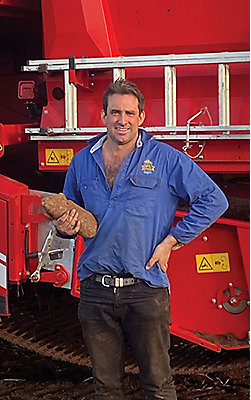Innovation at the forefront
Not afraid to be the first person to try something different, even if there are risks involved, Zeke was the first grower in the country to commercially adopt heat pump technology for greenhouse heating, resulting in cost reductions and an increase in production and quality.
“We had been circulating water through pipes heated by LPG to keep optimum temperatures during the night and winter, but the cost increases meant we had to start running the greenhouses at a lower heating capacity,” he said.
The lost production, reduced quality and increase in disease prompted Zeke to look at new research for greenhouse heating, and a piece of promising technology being adopted in Europe held the key.
Heat pumps are a relatively new, highly efficient technology that is seen more commonly in industrial hot water applications, such as heating public swimming pools and hotel hot water.
Using the environment as a heat source, such as residual atmospheric heat, it is capable of producing more energy than it consumes.
Zeke said the results were incredible, and the technology had allowed him to improve the quality of his product while reducing energy costs by 25%.
Wins and losses all part of the process
Asked where his innovative mentality came from, Zeke put it down to natural curiosity.
“My dad’s always had a bit of a restless mind and I think I’m probably a bit similar to him,” Zeke said.
“Sometimes it’s good, sometimes it’s bad; you get distracted by things and go wandering, and if you see something that could be better, you work out what to do.
“We can also get easily excited by new things.”
There’s been some “definite failures”, but those too were learning opportunities.
“In the past five years, I don’t think there’s been two years in a row where we’ve done completely the same thing,” Zeke said.
“We’ve tried diversifying with different crops and while it’s not necessarily worked for us, we might have learnt something about how to manage or get the best use of our technology by growing another crop that needs something different than capsicums do.
“We’ve not necessarily stuck with that crop, but we have been able to bring what we’ve learnt from that back into the capsicum growing.”


